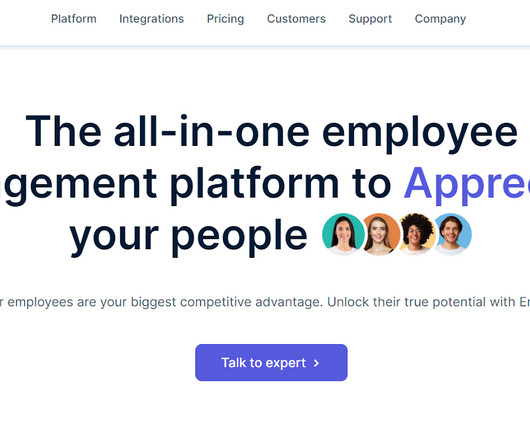Workers are looking – and leaving – for career development
HR Morning
JUNE 11, 2019
Prospective employees see career development as among the most important reasons to sign with —and stay with — with your organization. And, while you may think you are offering top-notch learning and development programs, they don’t think you are doing such a great job. Leadership development.





















Let's personalize your content